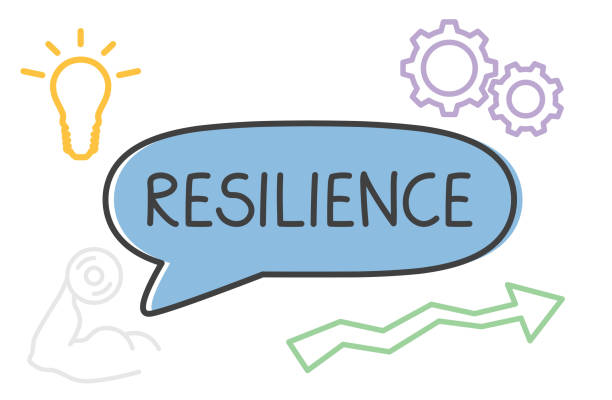
07-Jul-2023 , Updated on 7/10/2023 3:14:34 AM
How does forgiveness impact our mental health
Highlights
- Forgiveness promotes mental well-being by reducing negative emotions such as anger, resentment, and bitterness.
- It helps to decrease stress levels, which in turn can have positive effects on overall mental health.
Forgiveness has been linked to lower rates of depression and anxiety, as it allows individuals to let go of negative thoughts and emotions associated with past hurts.
- By forgiving others, individuals can experience a sense of relief and freedom, which can lead to increased happiness and life satisfaction.
- It can enhance self-esteem and self-worth as forgiveness requires empathy and understanding towards oneself and others.
- Forgiveness fosters healthier relationships by improving communication and conflict resolution skills, leading to better social support and a more positive
social environment.
- It promotes resilience and coping skills, enabling individuals to move forward from painful experiences and adapt more effectively to future challenges.
Forgiveness is associated with improved physical health outcomes, including lower blood pressure and reduced risk of cardiovascular diseases.
In our journey through life, we encounter numerous situations where we may experience hurt, betrayal, or disappointment caused by others. The instinctive response to such negative experiences is often harboring resentment, anger, or a desire for revenge. However, research has shown that the act of forgiveness can have a profound impact on our mental health and overall well-being. In this view, we will explore the transformative power of forgiveness and delve into how it can positively influence our mental and emotional states.
Understanding Forgiveness
Forgiveness is a complex and multifaceted concept that involves letting go of negative emotions, resentment, and the desire for retribution towards those who have wronged us. It is important to note that forgiveness does not condone or excuse the harmful actions of others but rather focuses on freeing ourselves from the burden of carrying grudges or holding onto negative emotions.
Forgiveness and Emotional Healing
One of the significant ways forgiveness impacts our mental health is through emotional healing. Holding onto anger and resentment can take a toll on our emotional well-being, leading to stress, anxiety, and even depression. When we choose to forgive, we allow ourselves to acknowledge and process our emotions, and eventually, let go of the negative energy associated with the hurtful experience. By doing so, we create space for healing and emotional growth, enabling us to move forward with a healthier mindset.
Reducing Stress and Anxiety
Unresolved conflicts and feelings of resentment can contribute to chronic stress and anxiety. The act of forgiveness has been shown to reduce stress levels by diminishing the emotional and physiological response triggered by negative experiences. Studies have indicated that individuals who practice forgiveness experience lower blood pressure, reduced heart rate, and improved sleep patterns, all of which contribute to enhanced mental well-being.
Promoting Positive Relationships:
Forgiveness also plays a pivotal role in fostering positive and meaningful relationships. When we hold onto grudges or resentment, it hampers our ability to trust and connect with others. By practicing forgiveness, we open ourselves up to the possibility of rebuilding relationships, cultivating empathy, and promoting understanding. This, in turn, strengthens our social support network and contributes to our overall mental and emotional resilience.

Enhancing Self-Esteem and Self-Worth
Self-forgiveness is an essential aspect of the forgiveness process. Often, we are harshest on ourselves, blaming ourselves for past mistakes or failures. Engaging in self-forgiveness allows us to let go of self-blame and negative self-perceptions, leading to increased self-esteem and self-worth. By accepting our imperfections and acknowledging our capacity for growth and change, we develop a more compassionate and positive relationship with ourselves, contributing to better mental health outcomes.
Boosting Psychological Well-being
Numerous studies have demonstrated the positive impact of forgiveness on overall psychological well-being. Forgiving others and ourselves has been linked to lower levels of depression, anxiety, and anger. It can also improve emotional regulation, increase resilience in the face of adversity, and promote a greater sense of life satisfaction and happiness. By releasing ourselves from the burden of resentment, forgiveness allows us to focus on personal growth and embrace a more optimistic and positive outlook on life.
The Process of Forgiveness
While forgiveness holds immense potential for improving our mental health, it is important to acknowledge that it is not always an easy or instantaneous process. Forgiveness requires self-reflection, empathy, and a willingness to let go. It involves acknowledging our pain, understanding the perspective of the person who hurt us, and actively choosing to release our negative emotions. Seeking support from therapists, counselors, or support groups can be invaluable in navigating the complexities of forgiveness and achieving emotional healing.
In a world where conflicts, hurts, and misunderstandings are inevitable, forgiveness stands as a powerful tool for promoting mental and emotional well-being. The act of forgiving others and ourselves has the potential to release us from the emotional burdens that weigh us down, fostering healing, resilience, and a greater sense of peace. By choosing forgiveness, we empower ourselves to create a brighter, more fulfilling future, characterized by improved mental health and stronger, more meaningful connections with others.

SEO and Content Writer
I am Drishan vig. I used to write blogs, articles, and stories in a way that entices the audience. I assure you that consistency, style, and tone must be met while writing the content. Working with the clients like bfc, varthana, ITC hotels, indusind, mumpa, mollydolly etc. has made me realized that writing content is not enough but doing seo is the first thing for it.
Comments
Join Our Newsletter
Subscribe to our newsletter to receive emails about new views posts, releases and updates.
Copyright 2010 - 2026 MindStick Software Pvt. Ltd. All Rights Reserved Privacy Policy | Terms & Conditions | Cookie Policy